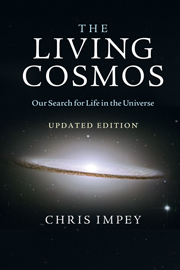PREFACE
Published online by Cambridge University Press: 05 August 2011
Summary
It's quite peculiar to be human. Our lives are filled with event and episode, with work and recreation, with the ebb and flow of friends and family. Seen from above, our actions would seem as purposeful as the activity of bees in a hive or squirrels in a forest. Yet we each house the awareness that we're living, conscious entities. We reflect on our existence. We know that we will die. Perhaps we share self-awareness with a few other species on Earth, but no other creature has gained knowledge of its place in the largest landscapes of time and space.
The history of astronomy has been a steady march of awe and ignominy: awe at the prodigious size and age of a universe with tens of billions of galaxies, ignominy that we have no special place among those galaxies and their countless trillions of stars. Stars and nebulae and planets are the result of natural forces. Rocks and clouds weren't created for our pleasure or benefit. The last bastion of specialness is our existence. Surely life has purpose and meaning. As the poet Stephen Crane has written,
A man said to the universe:
“Sir I exist”
“However,” replied the universe,
“The fact has not created in me
A sense of obligation.”
The final step in the Copernican revolution would be the revelation that we live in a biological universe.
- Type
- Chapter
- Information
- The Living CosmosOur Search for Life in the Universe, pp. xv - xviiiPublisher: Cambridge University PressPrint publication year: 2011

